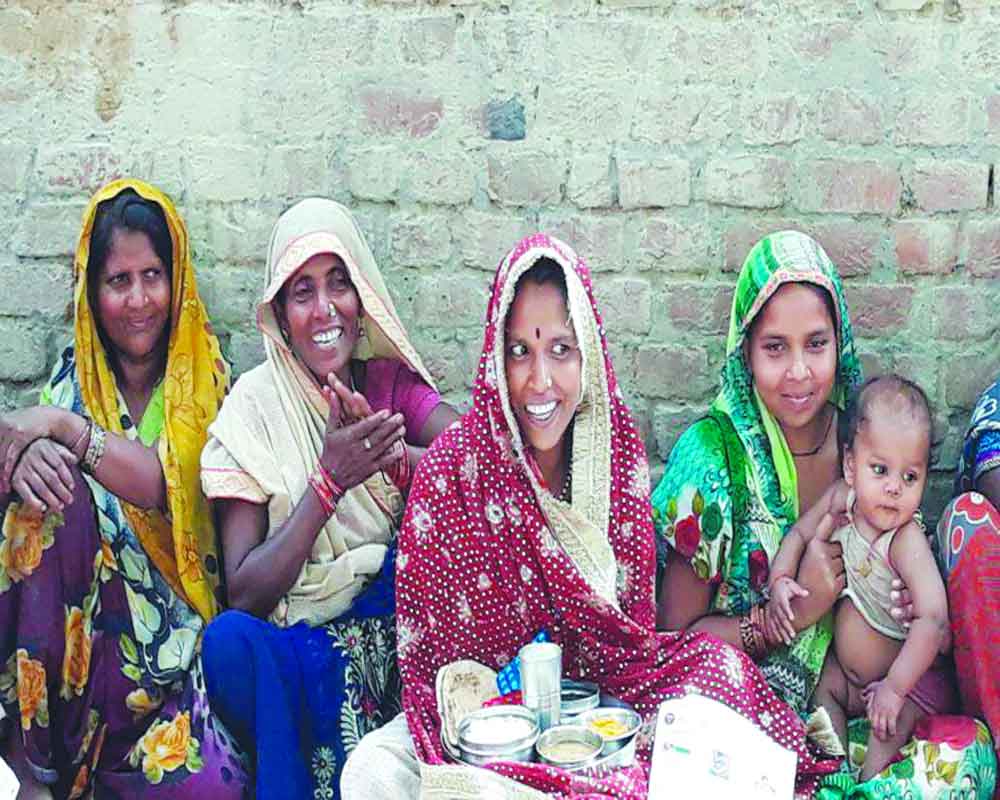Anganwadis focus on hygiene to tackle some of the diseases that were rampant among the tribals of Amravati. By Satish Deshpande
Melghat is a green heaven in eastern Maharashtra. It has been declared a tiger reserve in Amravati district and its general landscape showcases hills and ravines dotted with jagged cliffs and steep climbs. Blessed with abundant flora and fauna, it feels heavenly to live here. And yet, the reality is far from idyllic.
Although its natives live close to nature, the rural residents of Melghat’s Chikhaldara block are familiar with diseases like dysentery, anaemia and malnutrition. Generations of Korku women — nearly 80 per cent of the inhabitants belong to the Korku tribe — have been caught in the vicious cycle of child marriage, early pregnancy and caring for malnourished children. Fortunately, the APJ Abdul Kalam Amrut Yojna, initiated in December 2015, took a step towards breaking this cycle of distress and inter-generational malnutrition.
At Jaitadehi village, anganwadi worker (AWW) Sunita Meshram has spent the last couple of years meticulously executing the Amrut Yojana scheme among the Korku women who fall under the aegis of her anganwadi. Under this scheme, every tribal woman in her third trimester of pregnancy is entitled to a free and nutritious meal every day, which continues for three months after delivery so that the newborn is healthy. The menu consists of bhakri/roti, rice, pulses, green vegetables, jaggery, groundnut ladoos, boiled eggs/banana/nachni halwa and soy milk.
Initially, Meshram used to prepare the protein-rich meal and asked pregnant women and lactating mothers in the village to come to the anganwadi to have the meal. “But soon I realised neither did they understand why I wanted them to visit the aganwadi to eat the nutritious food but often times, they were simply unable to come to us,” she says. So she changed her approach. Not only did she explain to them the nutritional value of the meal she had made for them in their own dialect, she also decided to go into their homes and ensured that they had the food.
“If it is difficult for them to visit the anganwadi, we take the meal to their house and I make sure that they eat it in my presence. The meal includes sabzi-roti, dal-chawal, groundnut laddoo, cucumber, lemon and an egg. Nowadays, we typically have around 12 to 20 women visiting the anganwadi for this meal. Our constant engagement, particularly the home visits, is fetching us great results,” she adds.
Sanjay Durve, Child Development Project Officer (CDPO), Chikhaldara block, says, “Our quantitative data reveals that the percentage of low birth weight has come down from 29-32 per cent to 12-15 per cent. This is a great achievement and the best part is that it has improved the quality of life of tribal mothers. Apart from making the meals under the scheme, AWWs like Meshram are also keeping a record of the weight and immunisation schedule of the infants.”
What do the tribal women in Jaitadehi think about Meshram’s work? They would break into a smile. Once shy and quiet, they reveal that they have been able to come out of their shell, thanks to the inclusive approach of the AWWs. Puja Korku, 20, a new mother Rita Korku, soon to be mother, 19, visit the anganwadi daily to have their specially-prepared meal. They say, “She speaks to us in our language which makes it easier to comprehend everything. We appreciate her effort. Tai has explained that the meal provides the mother and the child with balanced nutrition. The laddoo and egg gives us adequate protein and energy.”
Clearly, communicating with them in their own language puts them at ease and has made the otherwise conservative tribals more receptive to Meshram’s involvement. This approach is being used to drive home the message of hygiene and hand-washing among children in the area as well.
In Chikhaldara block’s Jamli village, a partnership between the local anganwadi and health sub-centre has yielded a remarkable innovation that is changing the way children wash their hands. Not used to washing up after their daily ablutions or even before having meals, they commonly suffered from gastro-intestinal ailments. Repeated bouts of dysentery resulted in severe weight loss and anaemia. The government health workers put their minds together and developed the tin hand-wash fountain. “We have created a simple device to aid in hand-washing. A tin with approximately five-litre capacity, which is fastened with a rope, is fixed at a height of around four feet on a tree or to a pole. The other end of the rope is hung loose. The tin is filled with water. When the loose end of the rope is pulled, the tin tilts and the water pours out. When the rope is released, the tin straightens,” explains Kirit Khanna, anganwadi supervisor, Jamli and Dr Ankush Mankar, medical officer, Jamli health sub-centre.
CDPO Durve says, “We speak to the community in their Korku dialect telling them about the need for hand-washing. We have been conducting hand-washing demos in villages and this strategy has helped in publicising the concept. In the anganwadis, the children make it a point to wash their hands before having their meal.”
During the Poshan Pakhwada held earlier in the year by health workers, interactive sessions about hand-washing were conducted. These demonstrations received a positive response from tribals; many households have already installed the tin hand-wash fountain. “Anganwadi workers have been visiting homes talking to people about the device. They are asking mothers to attend the sessions at anganwadis. I’m glad that the villagers have participated wholeheartedly in this development,” Durve says.
—Charkha Features


























